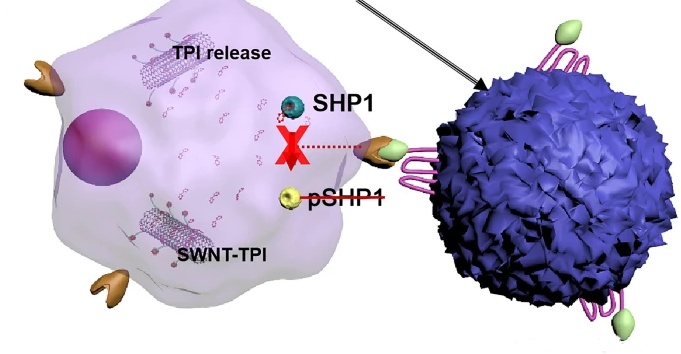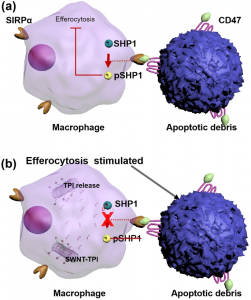A team of Michigan State and Stanford researchers have upgraded their Trojan horse therapies designed to fight one of the world’s leading causes of death.
Led by Bryan Smith, an associate professor in MSU’s Department of Biomedical Engineering, the team is building on its nanoscopic tubules that carry drugs to fight atherosclerotic plaques involved in cardiovascular disease.
With the help of some crafty chemistry, the team has enabled the tubes to sense when they’ve successfully entered a cell to release their therapeutic payloads. The team, including first author Yapei Zhang, a postdoctoral fellow in Smith’s lab, published this work online on Nov. 6, 2020, in the journal Nano Research.
“The enzyme we’re targeting with the drugs is inside the cell, so you want to release the drugs inside the cell only,” said Smith, who is also the director of the Translational NanoImmunoEngineering Lab located at the Institute for Quantitative Health Science and Engineering.
To fight atherosclerotic plaques, the team’s nanosized drug-delivery vehicles selectively enter plaque-related immune cells. The nanoparticles carry a medicine that bypasses a plaque’s defense and stimulates removal of the plaque’s dangerous soupy core.
The new research helps deliver those drugs where they are most effective, leading to improved performance in tests done in cell culture. Team members are now working toward translating their work to the clinic.
“The purpose of this work is to help people. And not just people, but animals, too,” said Smith, whose sister and father are both veterinarians. “I’ve got a deep love for animals, and we’ve been talking to some people in the College of Veterinary Medicine so that our work can also help people’s pets.”
- Via MSUToday




